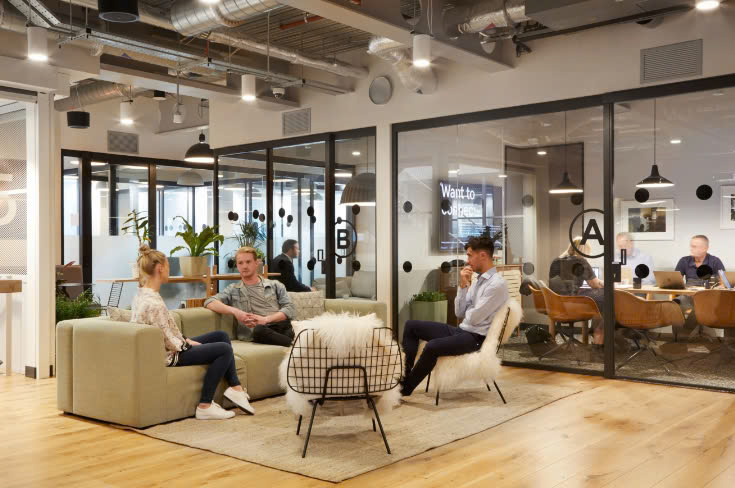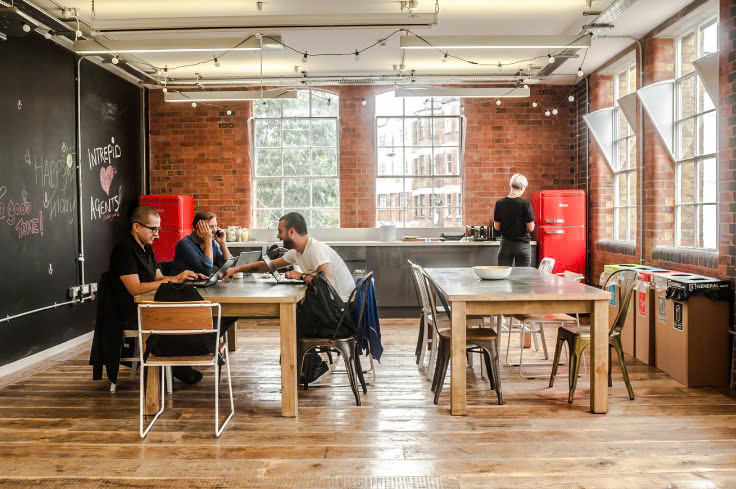The shared office market in Ho Chi Minh City (HCM) is currently undergoing a significant boom, as the demand for flexible workspaces continues to rise. With shifts in how businesses operate, many companies have turned to shared office solutions to optimize costs, enable flexible working for employees, and easily scale their operations. HCM, the vibrant economic center of Vietnam, has seen remarkable growth in this market, especially in central districts like District 1, District 3, and Binh Thanh District.

The rapid growth of shared offices in HCM is not accidental. According to a report from Savills Vietnam, by the end of 2023, the shared office space had increased by over 40% compared to the previous year. The HCM market currently offers around 65,000 square meters of shared office space, with prominent international and local brands such as WeWork, Dreamplex, UpGen, and Toong. This growth stems in part from the shift in traditional work models, as many companies and individuals recognize the clear benefits of renting office space by the hour, day, or month.
A prime example is WeWork, the largest global provider of shared offices, which has opened multiple locations in prime areas of HCM, such as District 1 and District 3. The WeWork location at Lim Tower, right in the heart of District 1, has become an ideal destination for startups, freelancers, and small and medium enterprises (SMEs). With an average rental price of 3 to 7 million VND per month for a seat, customers enjoy not only a modern workspace but also access to various amenities such as meeting rooms, relaxation areas, free coffee, and 24/7 security. This flexibility in rental terms and the convenience of the services have helped WeWork attract a large number of clients.
For small businesses and startups, shared offices are an ideal option. Startups don’t have to make large investments in private offices but can instead focus resources on product development and market expansion. According to CBRE statistics, by mid-2024, more than 60% of businesses using shared offices in HCM were from the technology and creative sectors—industries that require flexible and innovative workspaces.
One significant factor making shared offices increasingly appealing is their cost-effectiveness and flexibility. Instead of committing to long-term leases with high prices for traditional office spaces, businesses—especially startups and SMEs—can rent shared offices on short-term contracts without worrying about additional costs like maintenance, furniture, or office equipment. According to CBRE Vietnam, in 2024, up to 55% of businesses in HCM that chose shared offices were from the technology, creative, and financial services sectors—fields that typically demand flexible working environments and adaptability in their operations.

Moreover, the explosion of remote working trends has also fueled the demand for shared offices. Many international companies have realized the convenience of this model, as it allows employees to work flexibly from multiple locations without maintaining a permanent office. This not only saves costs but also optimizes productivity.
Competition in the shared office sector in HCM is also becoming increasingly fierce. Providers are continually upgrading their services, from modern, creative space designs to integrating smart technological solutions to provide the best customer experience. Many locations have invested in smart office management systems, allowing customers to manage meeting schedules, access workspaces, and enjoy amenities through mobile apps. These innovations not only help attract more clients but also provide a competitive edge in the increasingly crowded market.
Shared offices are becoming a strong development trend in HCM, with outstanding benefits in terms of cost, flexibility, and networking opportunities. With the ongoing rise in the number of businesses and individuals seeking this solution, the shared office market is expected to continue growing in the future, contributing to a shift in how we perceive workspaces and work methods in the digital age. This is not just a temporary option for small businesses or startups but is gradually becoming a sustainable office model for companies of all sizes.